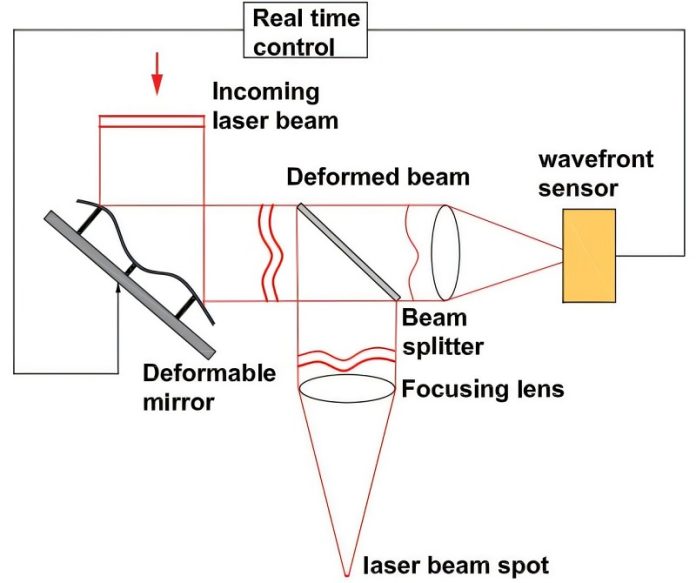
Yongcui Mi, a researcher from University West, has developed an innovative technology that could transform how high-power lasers are used in manufacturing.
Inspired by the advanced mirrors used in astronomy telescopes, this new approach allows real-time shaping and control of laser beams for laser welding and 3D printing techniques like directed energy deposition.
This breakthrough could lead to more efficient and reliable manufacturing processes in just a few years.
Industries that rely on high-power lasers, such as aerospace and automotive manufacturing, may soon have access to technology that produces stronger, higher-quality results while saving time and materials.
Real-time laser beam shaping
Yongcui’s innovation uses “deformable mirrors,” a type of technology originally developed in the 1950s to improve telescope imaging of stars and planets.
In this new application, the mirrors can handle high-power lasers and, with the help of AI and computer vision, dynamically reshape the laser beam during the welding process.
“We are the first to apply deformable mirror technology in this way,” Yongcui explained. “The beam shape can adjust in real-time to adapt to changes in joint gaps, making it possible to weld steel plates with gaps of up to 0.6 millimeters.”
This dynamic shaping happens incredibly quickly, in just 10 milliseconds. By using custom elliptical beam shapes, the technology delivers better results than traditional static circular beams. Tests show that this approach reduces workpiece deformations by up to 80%, creating stronger and more precise welds.
The technology has also been successfully tested in directed energy deposition, a 3D printing method where lasers and wire are used to build metal structures. In both welding and 3D printing, this real-time control allows for more efficient, flexible, and high-quality processes.
“Dynamic laser beam shaping not only improves the quality of the final product but also reduces material waste and energy consumption,” Yongcui said. “This can save time and money while meeting the strict standards of modern manufacturing.”
The custom deformable mirrors used in this project were developed in partnership with Dynamic Optics, an Italian company specializing in telescope optics. Yongcui also collaborated with industrial partners like GKN Aerospace, Brogren Industries, and Procada, which are interested in applying this technology to demanding fields like aircraft engine production and electric vehicle manufacturing.
The next step for Yongcui and the team is to refine the technology for large-scale production. “I hope to continue my research and further expand what we know about this exciting field,” Yongcui said.
With its ability to make high-power laser processes faster, cheaper, and more precise, this innovative mirror-based technology has the potential to transform industries ranging from aerospace to automotive manufacturing.
Source: KSR.



